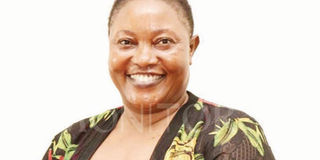Prime
The inside story of why Museveni shuffled RDCs

Milly Babalanda, presidency minister. PHOTO/FILE
What you need to know:
- Some of the RDCs we spoke to last week expressed enthusiasm to start work and monitor government programmes to ensure that they benefit the people.
Some of the Resident District Commissioners (RDCs) and their deputies were sacked due to alleged corruption, incompetence and failure to monitor government programmes, Daily Monitor has learnt.
President Museveni on March 23, 2020 released a list of 147 RDCs and 163 deputies.
According to the list, the majority of RDCs and their deputies were dropped, triggering mixed reactions from the public.
On the other hand, the President appointed a majority of the youth and a few people from the Opposition, which observers say signifies inclusion.
ALSO READ: Everyday corruption by everyday citizens
Sources privy to the reshuffle have intimated to Daily Monitor that prior to reshuffle, the President had received several reports from ministers and intelligence officers, which exposed the unethical conduct of some of the dropped RDCs.
The issues highlighted in the intelligence reports include involvement in illegal land evictions, failure to monitor government programmes such as Emyooga funds, absence from work and working with the Opposition to undermine the ruling government.
However, sources did not give details of the sacked RDCs who were involved in corruption but maintained that the President was already “tired” of their conduct.
The Minister for Presidency, Ms Milly Babalanda, who is directly charged with supervising RDCs downplayed the allegations, saying the appointment of RDCs and their deputies is the prerogative of the President.
The minister said the President has ‘ears’ in every part of the country and that his decisions cannot be questioned.
“I am surprised that people, including senior leaders, are discussing presidential appointments. This is indiscipline. The President is free to appoint anybody without being questioned. The Constitution gives him that leeway,” she said.
Ms Babalanda said: “I cannot speculate why the President made those changes but just know that in these appointments he doesn’t follow people’s tribes, religion or colour. What matters is service delivery.”
According to sources, some of the dropped RDCs colluded with some health workers to divert funds meant for the Covid-19 response.
The cumulative complaints against errant RDCs by some government officials and members of the public, sources said, compelled the President to order for a thorough audit of RDCs, which later informed his decision to reshuffle them.
President Museveni has previously attacked RDCs for failure to popularise government programmes.
Sources also said the President is preparing the youth for leadership positions since they have the zeal and charisma to propel the development agenda of the National Resistance Movement (NRM), which is hinged on service delivery.
Some of the RDCs we spoke to last week expressed enthusiasm to start work and monitor government programmes to ensure that they benefit the people.
Mr Emmanuel Businge, a National Resistance Movement (NRM), mobiliser in the Rwenzori Sub-region was appointed deputy Resident City Commissioner (RCC) for Fort Portal Central Division.
Mr Businge told Daily Monitor yesterday in an interview that his appointment will enable him to make a contribution towards fostering security and service delivery in the country.
Asked about the appointment of the youth, Mr Businge said the NRM has managed to outlive generations and maintained a very large support base because of its inclusion system of governance, which involves identification of young cadres.
To reinforce their work, the President appointed commissioners who will be based at the RDC secretariat in the President’s Office.
These include Lt Col Ambako Kibrali (senior presidential adviser on mobilisation), Sr Grace Akiror (north), Mbagandi Nkayi Fred (central), Maj Martha Asiimwe (western region), Obedi Gertrude Collines (east) and Dr Dan Ssekiboobo (senior presidential adviser-in-charge of research), and James Tweheyo (Karamoja).
Officials in the Office of the President, who preferred anonymity because they are not allowed to speak to the media, said the Secretariat would play a supervisory role and also hold RDCs in their respective areas of jurisdiction accountable.





